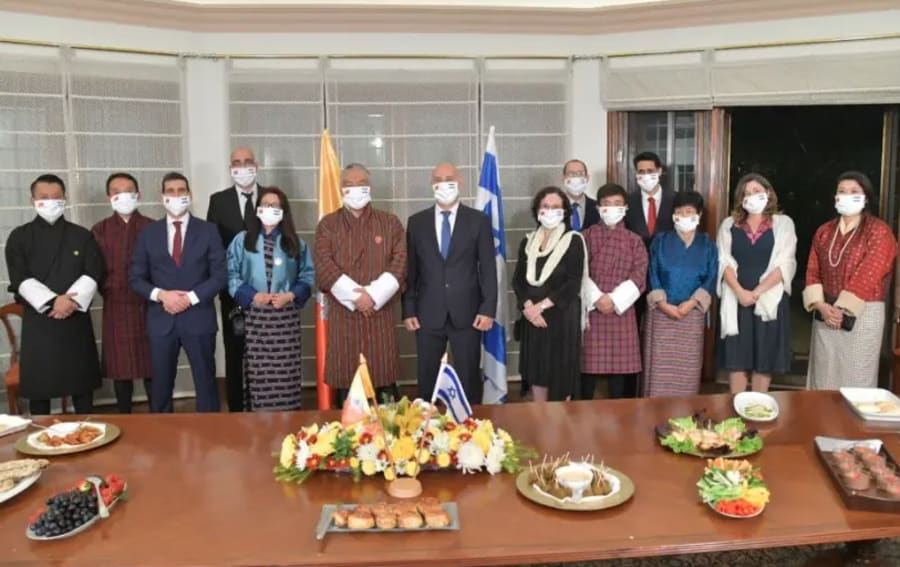Why did Bhutan formalize relations with Israel?
Israel and Bhutan expect to formulate “a joint work plan in the areas of water management, agriculture, health and more” according to Israel’s FM Ashkenazi

Bhutan has become the fifth country to establish diplomatic relations with Israel in recent months, a move seen as yet another diplomatic victory for Israel after relations were normalized with the United Arab Emirates, Bahrain, Sudan and Morocco.
"I welcome the establishment of relations between Israel and Bhutan, which is more fruit of the peace agreements," said Prime Minister Benjamin Netanyahu, adding that Israel is in contact with additional countries that want to join and establish relations.
Why did Bhutan, a small kingdom of barely 800,000 people approximately the size of Switzerland, sandwiched between India and China in the Himalayan Mountains, suddenly decide to establish formal diplomatic relations with Israel?
Unlike the newly established relations with formerly hostile states in the Middle East, Bhutan’s previous lack of formal ties with Jerusalem were due to Bhutan’s policy of diplomatic self-isolation. As a result, Bhutan only has diplomatic relations with 53 countries worldwide and major Western powers, such as the United States and Great Britain, are not among them.
Bhutan is famous for its Gross National Happiness index, and for suggesting the United Nation’s World Happiness Day, but it is also a financially impoverished nation. Like many developing nations, Bhutan has struggled for years to feed its population and it figures on the UN’s list of least developed countries in the world. As a result, the country has begun to soften its isolation policy in favor of prioritizing its economic and technological development and the need for outside assistance to break out of the poverty cycle.
Prior to establishing formal ties with Jerusalem, Bhutan reportedly worked with the Mashav division of the Israeli Foreign Ministry. Mashav is Israel’s agency for international development cooperation. It was established in 1958 at the initiative of former Israeli Foreign Minister Golda Meir and focuses on agricultural projects in developing nations in Africa, Asia and beyond. Through Mashav, Israel has welcomed students from Bhutan, who receive agricultural training in the Jewish state and gain inspiration from Israel’s technologically advanced farming techniques.
“For Bhutan, Israel is kind of a role model, a small country that struggled so well and managed to cope with complex challenges,” Israeli Ambassador to India Ron Malka, who signed the normalization agreement with Bhutan, told i24 news, adding that friendly informal relations had existed for many years before diplomatic relations were formally established.
Malka also revealed that Bhutan had asked Israel for development and technological assistance. The interest in Israeli expertise was so strong, in fact, that the King of Bhutan personally invited Malka to the country as his personal guest in 2019, which eventually paved the path to full formal diplomatic relations.
Israel and Bhutan expect to formulate “a joint work plan in the areas of water management, agriculture, health and more” according to Israel’s Foreign Minister Gabi Ashkenazi.
"Israel's circle of recognition is growing and expanding. The establishment of relations between us and the Kingdom of Bhutan will serve as another milestone in deepening Israel's ties in Asia," Ashkenazi said. “I invite my friend, Foreign Minister Dorji, to visit Israel to advance cooperation between our countries. I sincerely hope that in the upcoming year, we will host the King of Bhutan in Jerusalem for a first-of-its-kind royal visit.”
In sum, Bhutan is expected to benefit greatly from receiving Israeli expertise in numerous areas of development and Israeli companies hope to gain a new export market.

The All Israel News Staff is a team of journalists in Israel.














